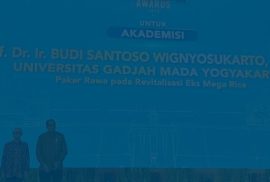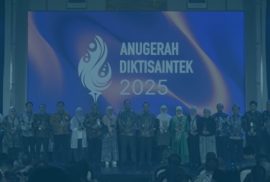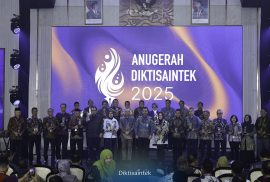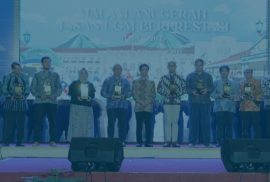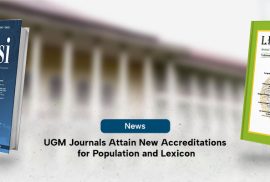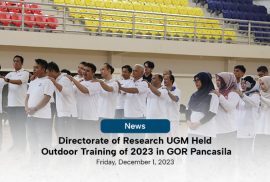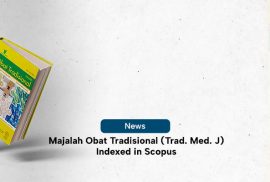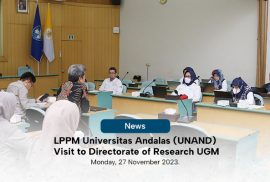Prof. Dr. Ir. Budi Santosa Wignyosukarto, Dip. H.E., lecturer of the Graduate School of Universitas Gadjah Mada (UGM) and a leading expert in wetland management and development, received the Sutami Awards 2025 presented by the […].
Universitas Gadjah Mada (UGM) achieved national recognition awarded by the Ministry of Higher Education, Science, and Technology of the Republic of Indonesia. Two scientists from Universitas Gadjah Mada were honored with prestigious awards at the […].
Amid the challenge of declining popularity and interest in Science, Technology, Engineering, and Mathematics (STEM), consistency in preserving and nurturing scientific knowledge has become essential to ensuring sustainability.
The Directorate of Research Universitas Gadjah Mada (UGM) organized a Sharing Session on Enhancing SINTA Data Management on Thursday, 18 December 2025, at Multimedia 1 Room UGM Central Office.
Universitas Gadjah Mada reaffirms its commitment to fostering a strong research culture and advancing the dissemination of knowledge through the UGM Research and Publication Awards 2025.
Universitas Gadjah Mada (UGM) achieved national recognition awarded by the Ministry of Higher Education, Science, and Technology of the Republic of Indonesia. Two scientists from Universitas Gadjah Mada were honored with prestigious awards at the […].
The number of nationally accredited journals at UGM has increased. According to the Decree of the Director General of Higher Education, Research, and Technology of the Ministry of Education, Culture, Research, and Technology Number 152/E/KPT/2023 […].
Engaging in outdoor activities is recognized as an effective means of fostering and enhancing self-confidence among participants. Moreover, such activities are acknowledged as therapeutic interventions conducted in the natural wilderness, involving the participation in challenging […].
On 14 November 2023, the data of articles published by Majalah Obat Tradisional (Trad. Med. J) has been included into Scopus database for publication released in 2019. This signifies that Majalah Obat Traditional has successfully […].
Monday, 27 November 2023, Directorate of Research Universitas Gadjah Mada (UGM) welcome a visit from LPPM (Lembaga Penelitian dan Pengabdian kepada Masyarakat) of Universitas Andalas (UNAND) led by Dr. -Ing.

